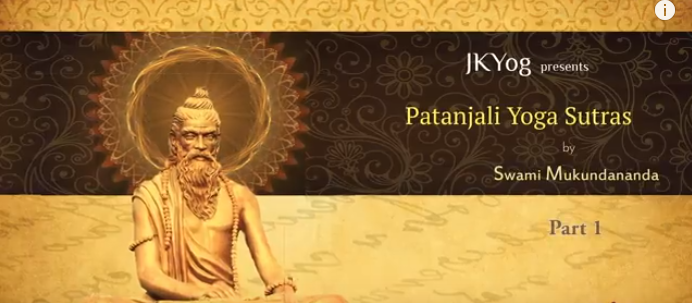The Yoga Sutras of Patanjali are a profound collection of aphorisms that offer timeless wisdom for achieving self-realization and inner harmony. Written by the sage Patanjali over 2,000 years ago, these sutras (scriptures) serve as the foundation for classical yoga and provide practical steps to transcend the chaos of the mind and achieve spiritual liberation.
Let’s delve into the essence of Patanjali's Yoga Sutras, explore their relevance today, and discuss how you can incorporate their wisdom into your life.
Understanding the Yoga Sutras
The Yoga Sutras are divided into four chapters (padas), each addressing a unique aspect of the yogic path:
- Samadhi Pada: The chapter on absorption focuses on the meaning and goal of yoga.
- Sadhana Pada: The chapter on practice outlines disciplines like the Eightfold Path (Ashtanga Yoga).
- Vibhuti Pada: The chapter on powers describes the extraordinary abilities achieved through deep practice.
- Kaivalya Pada: The chapter on liberation explains the ultimate state of freedom from the cycle of birth and death.
The Eightfold Path of Yoga (Ashtanga Yoga)
The Eightfold Path is a step-by-step guide to personal and spiritual growth. Here’s a quick overview:
- Yama (Ethical Disciplines): Non-violence, truth, non-stealing, continence, and non-possessiveness.
- Niyama (Self-Disciplines): Cleanliness, contentment, self-discipline, self-study, and surrender to the divine.
- Asana (Postures): Physical poses to develop strength, balance, and stability.
- Pranayama (Breath Control): Techniques to regulate energy through the breath.
- Pratyahara (Withdrawal of Senses): Turning inward to focus on the mind.
- Dharana (Concentration): Training the mind to focus on a single point.
- Dhyana (Meditation): Uninterrupted contemplation and mindfulness.
- Samadhi (Absorption): The ultimate goal of unity with the divine.
Relevance of Patanjali’s Teachings Today
In our fast-paced, stress-filled modern lives, the Yoga Sutras provide tools to cultivate mindfulness, self-discipline, and inner peace. By integrating the Eightfold Path into our daily routine, we can:
- Manage stress more effectively.
- Enhance mental clarity and emotional resilience.
- Strengthen our connection with ourselves and the world around us.
Incorporating the Yoga Sutras into Your Life
Here are simple steps to begin your journey:
- Start Small: Begin with a daily 5-minute meditation to develop mindfulness.
- Focus on Ethics: Reflect on one Yama or Niyama each week and try to practice it.
- *Explore Asanas: Join a yoga class or follow online tutorials to learn yoga postures.
- Practice Breathwork: Learn basic pranayama techniques to calm your mind.
- Seek Guidance: Study the Yoga Sutras with a teacher or read a commentary for deeper insights.
*Experience the transformative power of yoga with Prem Yoga sessions by JKYog, designed to deepen your practice and bring inner peace. Join us today and unlock your true potential at Prem Yoga.
Conclusion
Patanjali’s Yoga Sutras are much more than an ancient text—they are a roadmap for navigating the complexities of life and achieving lasting happiness. Whether you are a seasoned practitioner or just beginning your journey, these teachings can guide you toward a harmonious and fulfilling existence.

Call to Action
Are you ready to embrace the wisdom of the Yoga Sutras? Start your journey today!
- Subscribe to our newsletter for weekly insights on yoga and mindfulness.
- Download our free guide: Beginner’s Guide to Patanjali’s Yoga Sutras.
- Join our online yoga sessions to learn and practice under expert guidance.
- View Swami Mukundananda's video lecture series: Patanjali Yog Sutras and Yog Sutra of Patanjali.
- Join our weekly online group class for in-depth discussion and learning.
FAQs
Q: What is the primary goal of the Yoga Sutras?
The primary goal is to achieve Kaivalya, or liberation, by transcending the fluctuations of the mind and realizing one’s true self.
Q: Can beginners benefit from the Yoga Sutras?
Absolutely! The Yoga Sutras offer practical steps, from ethical practices to physical and mental disciplines, making them accessible to everyone.
Q: Do I need to be spiritual to study the Yoga Sutras?
No. The Yoga Sutras cater to individuals of all beliefs and focus on self-awareness and personal growth.
Q: How long does it take to master the Eightfold Path?
Mastery varies for each individual. The journey is not about speed but consistent effort and self-reflection.
Q: Where can I find a good translation of the Yoga Sutras?
Books by authors like B.K.S. Iyengar (Light on the Yoga Sutras of Patanjali) or Swami Satchidananda provide excellent commentaries.



